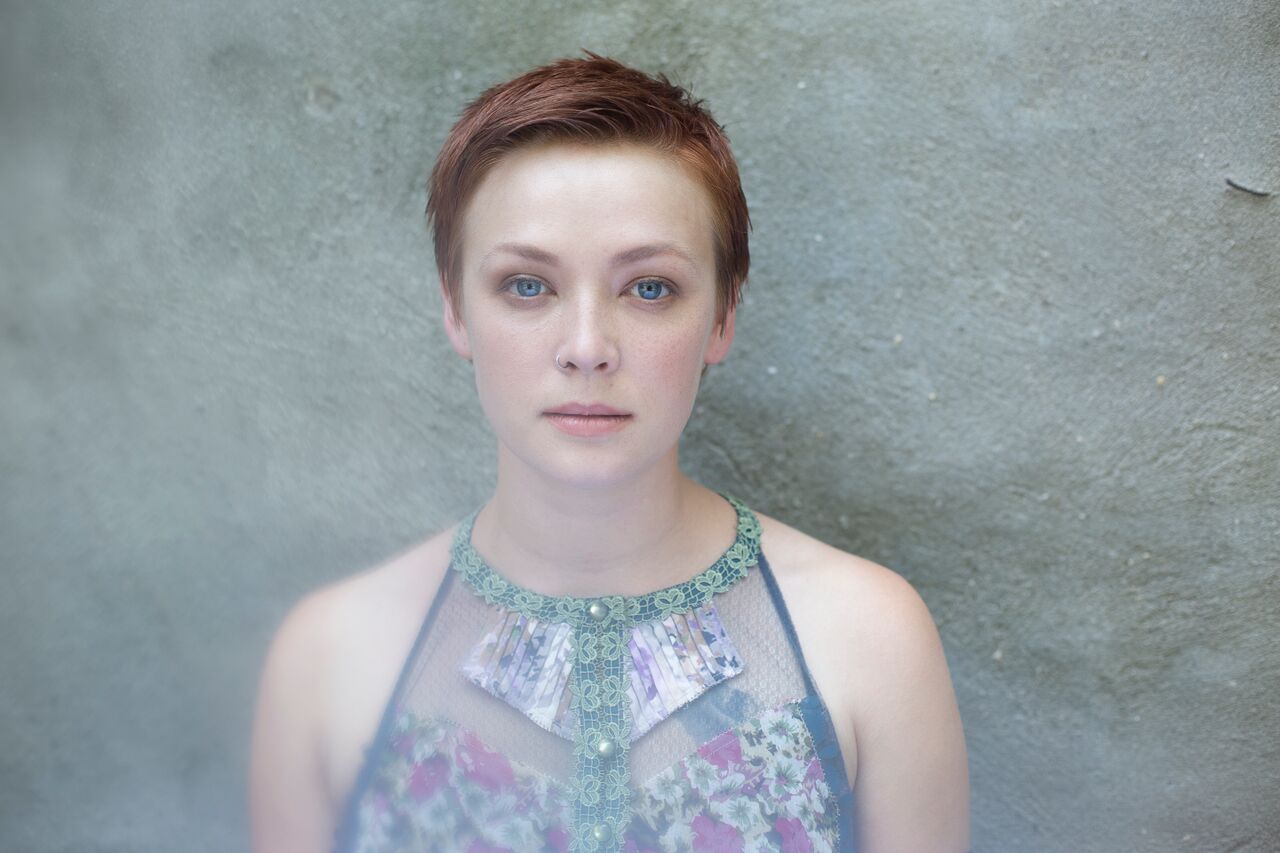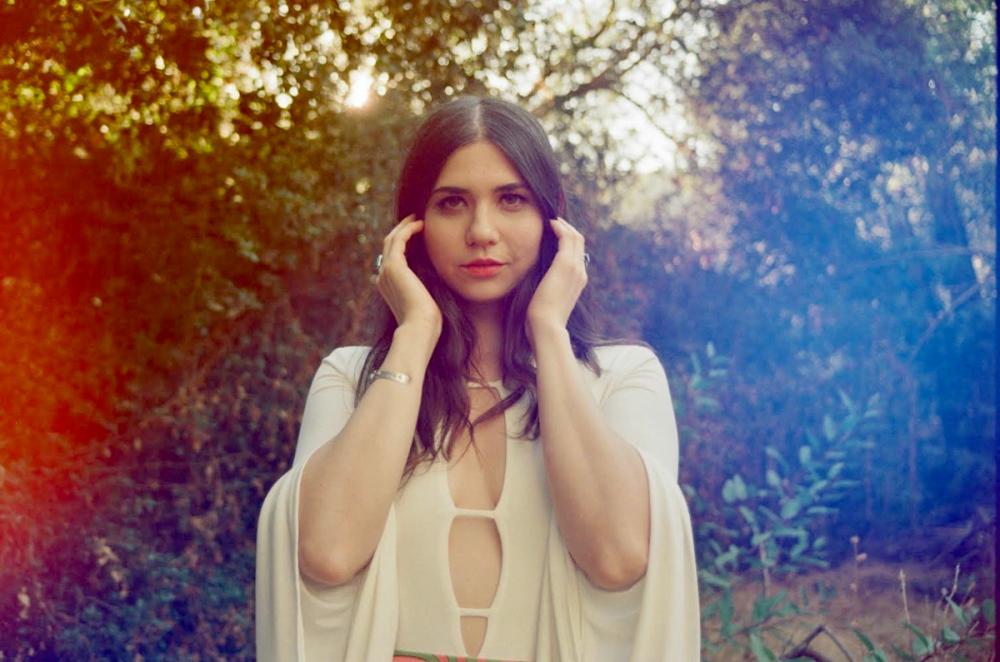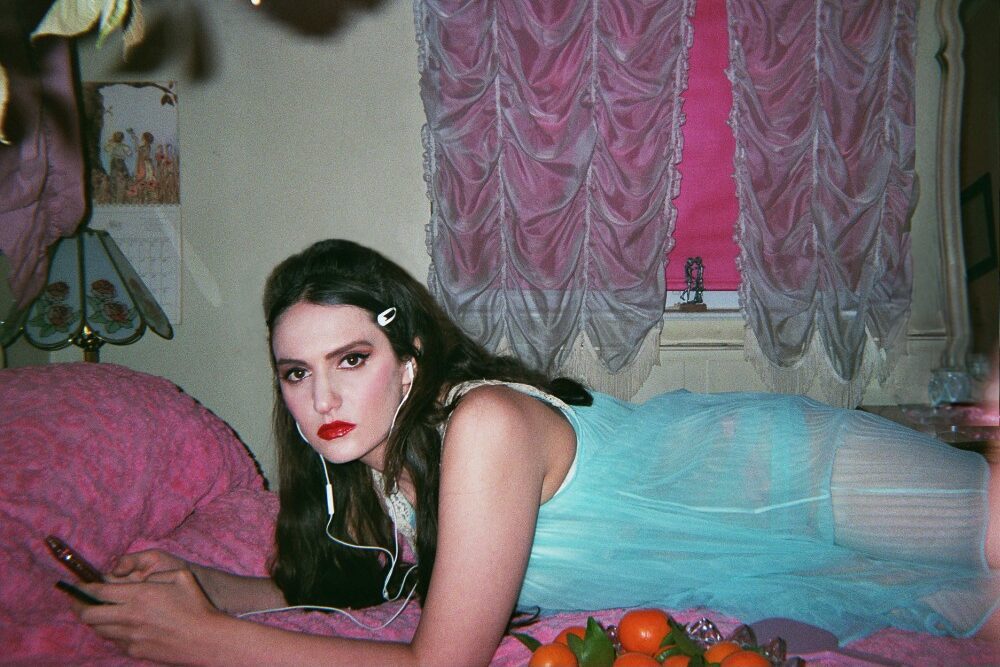
[fusion_builder_container hundred_percent=”yes” overflow=”visible”][fusion_builder_row][fusion_builder_column type=”1_1″ background_position=”left top” background_color=”” border_size=”” border_color=”” border_style=”solid” spacing=”yes” background_image=”” background_repeat=”no-repeat” padding=”” margin_top=”0px” margin_bottom=”0px” class=”” id=”” animation_type=”” animation_speed=”0.3″ animation_direction=”left” hide_on_mobile=”no” center_content=”no” min_height=”none”]
Debut albums are an interesting lot. Oftentimes, they’re described as a “freshman effort” in an attempt to explain work that isn’t fully realized. Sometimes, they are the product of years, finely tuned and immaculately coiffed, a near-perfect reflection of an artist coming into their own. Kim Anderson’s debut album Yarrow is quiet and introspective, it’s subject matter lying at the crossroads of New York City and nature itself; we’re pleased to premiere the record in its entirety below a day before its release on Biophilia Records.
It’s in the small, intricate details that Anderson truly delights. “In this place we turn from girls to women / Streets like fingers reached out after us / The car alarm screeched with some crazy rhythm / A song we felt we were the guardians of,” Anderson articulates with care on the track “By the River.” There is a plodding, steady quality to the record: it’s a soundtrack meant to accompany a day spent by yourself.
We sat down with Kim and talked about her jazz musician parents, being raised in New York City (before the Highline was a thing), and how her label promotes volunteering as a integral part of being an artist.
AF: You grew up in New York City, raised by jazz musicians. It sounds like a very romantic upbringing. Did you take an interest in music early on?
KA: Always. I can’t really remember learning to play piano, exactly, although I know I had a few lessons. I was terrible at practicing, because I was always just making stuff up. The first songs I can remember playing are weird little melodies I made up on the piano.
AF: So you leaned toward the avant garde! At what age did you begin to really construct songs?
KA: Probably around nine or ten. I was also listening to the radio, too, so much to my jazz-playing parents’ chagrin, the first complete songs I wrote were clumsy pop songs. It wasn’t until a few years later that all that interesting music they played and listened to started to influence me more directly. I still have a big place in my heart for both great jazz and a really catchy, concise pop song.
AF: You went to school at the New England Conservatory in Boston, MA. How did you come to study West African music?
KA: My immersion in the music and dance of West Africa, particularly from Ivory Coast and Guinea, started when I was about 14. One advantage of a great big cultural center like NYC is that people who are masters of their craft come here to teach. And that’s where I got really lucky – there was a dance and drum school just north of Union Square that focused on West African music and dance traditions, among other things. The teachers were phenomenal. A friend brought me to a dance class, and I fell in love.
Today I’ve definitely fallen off my dance game, but I still do manage to take drum classes here and there and participate with a NYC-based Ivory Coast dance and drum company. It’s a kind of apprenticeship, in a way; it’s a great honor that they let me sit in with them and learn as I play.
AF: Yarrow is your debut album. You crowdfunded on Kickstarter to get the initial funds. What was that experience like?
KA: Humbling, first and foremost. I knew I had a community that would support me, but I didn’t know how much of an outpouring of support I would get until I tried it. Anyone who’s crowdfunded a project can speak to the fact that it is both really moving and also very exhausting! Not that I’m complaining. But promoting your project, reaching out to people, following up, making update videos – it felt like a full-time job. Nowadays, when artists don’t have the revenue sources they traditionally did from hard-copy album sales, we’ve got to innovate. Find patronage in our own ways. And both the Kickstarter and my partnership with Biophilia Records have been part of that journey for me.
AF: I’m fascinated with your record label – is it true that they require artists in their contracts to volunteer?
KA: Absolutely! Biophilia is the brainchild of Fabian Almazan, a great musician who was looking for a way to support other musicians he cared about, and doing so in a way that would create a minimal environmental footprint, even be a positive conservational force one day. So all artists volunteer for a certain number of projects – river cleanups, tree-planting, hands-on things.
This was a no-brainer for me because I’ve spent the past seven years or so helping to manage a community garden I co-founded in Bushwick, Brooklyn, and promoting cooperative green spaces and gardens in urban environments like NYC has been a lifelong passion of mine.
Biophilia produces no CDs, which are made with plastics that are nearly impossible to recycle; instead, they produce beautiful hard-copy liner note foldouts called Biopholios. A download code on recycled paper, with the lyrics and album art that a CD or vinyl would normally have.
AF: Nature seems to play a part of Yarrow. The album has a gentle, wistful feel to it, like walking through the woods alone. It’s a difficult feeling to describe. I want to write the word melancholic, but it’s really more uplifting than that. Can you tell us a bit about the themes on this record?
KA: There are definitely literal references to flora and nature in general throughout the record, through the lens of a child in the middle of a great big city. If you grow up instinctively drawn to nature and you live in a place like Hell’s Kitchen, you find it in strange corners. Community gardening was one way of connecting with nature, but I also did a great deal of wandering, and songs on the album like “Yarrow,” “By The River,” and “The Arriving” are inspired by experiences I had searching for solitude, and a place for introspection, in New York.
For example, before the Highline in Manhattan was the magnificent park that it is, it was just an empty elevated railroad track, floating above the West Side of Chelsea. I used to sneak up there (it was closed to the public then), and sit and write. Many decades of abandonment had allowed a kind of scraggly ecosystem to begin taking hold, wildflowers and weeds growing up between cracks, a few small trees here and there. And really beautiful graffiti. The stark contrast between the silence of the elevated, empty Highline and the roaring trucks of 10th avenue resonated really deeply with me.
AF: How does the introspection on the album translate to the stage? Do you find the audience leaning forward, really listening intently to the lyrics?
KA: Onstage, it’s pretty intimate. It’s not a big, loud spectacle. People do tell me that they connect very much with the lyrics of certain songs, and I think that anytime you work hard to translate an experience that’s true into words, it will resonate with an audience, whether they’ve had the exact experience you’re singing about or not.
AF: What advice do have for a young musician still struggling to find their voice?
KA: I’m still on that journey myself, so I’m not sure if I can really speak with authority on that. But I do acknowledge that the struggle to make ends meet, to keep up with social media and a virtual life, to be a “productive” member of society, can be distracting for a person who is a creative soul. I say this to myself as much as anyone else: if it’s music you love, treat it with reverence, and find the time to make it. Even if it’s hard at times.[/fusion_builder_column][/fusion_builder_row][/fusion_builder_container]




